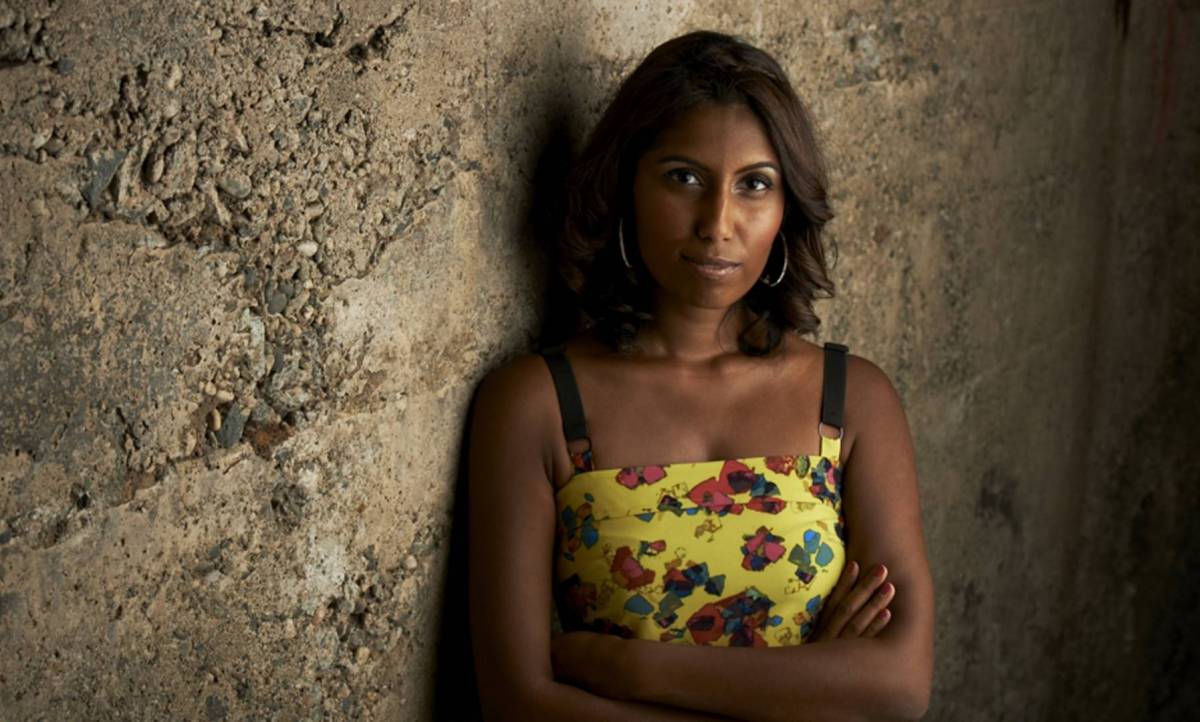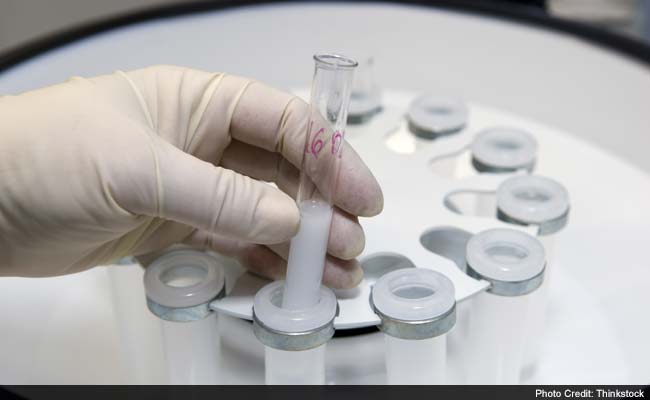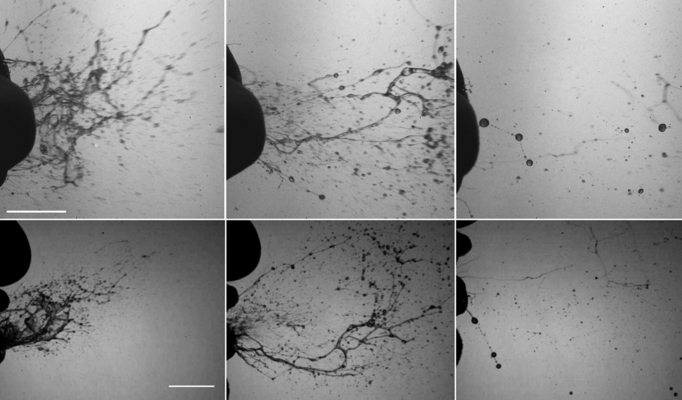
Director Nimisha Mukerji is an award-winning director of film and television, whose work has been featured on National Geographic and VICE. Her debut feature ‘65_RedRoses’ was one of the first official selections by Oprah Winfrey for her Documentary Club on OWN. Mukerji’s second feature ‘Blood Relative’ was produced for Knowledge Network and screened in competition at Hot Docs ’13, winning Audience Awards in Vancouver, New York and Paris before receiving 3 Canadian Screen Award nominations including Best Direction in a Documentary Program. Mukerji is an alumnus of TIFF’s Talent Lab and sits on the boards of DOC National and POV Magazine. She was the recipient of the 2015 Director’s Guild of Canada’s Mentorship Award and the 2014 Women in Film & Television Artistic Achievement Award (Vancouver). Her latest feature ‘Tempest Storm’ is releasing this month, and we give her the red carpet treatment, as our Personality of the Week.
You’ve documented some impressive work over the years. How do you pick and choose personalities, events or circumstances and arrive at the creative process of filming them?
I think I’ve been very fortunate so far in my career because my subjects have for the most part chosen me. I started out making narrative shorts while also interning on documentary films. That experience allowed me to fully appreciate the drama and immediacy of working in non-fiction. In the cases of all three of my feature documentaries – ‘65_RedRoses’, ‘Blood Relative’ and ‘Tempest Storm’ – I was drawn to these stories because I thought they were better than fiction. For me, it was far more powerful for audiences to meet these people and hear them speak for themselves than shooting a script performed by actors. And all of the subjects involved in my projects have given me extraordinary access into their lives, which is the most important thing when I start making a film. The question I always ask is: Will the subjects trust me enough to document their story, and can I in turn trust them to give me that unlimited access?
Why only engage in documentary film making? Is that what engages you as a filmmaker? Was it a career choice you made right from the get go?
I’ve always loved documentaries, and when I got into the film production program at UBC I had the chance to be mentored by Academy Award winning filmmaker John Zaritsky. He encouraged me early on to pursue making docs, and a year after graduating I began working on my first feature (65_RedRoses). I’ve written scripts while also working in factual – to me it’s all about the storytelling. I approach my documentaries in the edit room the same way I would approach writing a script for a narrative film. It’s also about taking the audience on a journey that has a beginning, middle and end, and the goal is to have them emotionally connect with the story and characters. I love collaborating and meeting new people, which is another reason I make films. The wonderful thing about documentaries is that they enable me to immediately tap into places and communities, I get to see and experience things in a way I never could as a tourist. Working in documentary also means having a small but adaptable crew, and as a result we become close friends, and the same goes with my subjects. While the film might be done, their lives continue on, and having shared this intimate experience of making a film together, the relationship continues as well.
Talk to us about your roots, the education of becoming a filmmaker, the unusual twists and turns in your remarkable career
I was the videographer for my graduating class in high school, and I worked in a video store while I was in university. I always loved reading and writing, so I majored in English Literature at UBC. The big challenge I faced at the beginning was when I applied to UBC’s film production program in my third year and didn’t get in (I got short listed, but ultimately wasn’t able to attend). It wasn’t until this setback happened that I fully understood how much I wanted to be a filmmaker. My parents supported my dreams and helped me buy a camera, so I was free to experiment and learn through trial and error how to make shorts. I made a documentary about psychics as well as a scripted film about a swimmer, and it was these two projects that helped me get into the film production program the following year when I reapplied. I learned how important it is to never give up. Rejection is a part of the industry, but you have to persevere and never take ‘no’ for an answer.
Documentary is reality, but is it also scripted, or do you shoot and then edit for effect. In short, what is your style?
There’s a lot of writing involved, especially at the development stage but I don’t write out a script. I write out treatments that include the story that I think I will be telling. I describe the drama I believe will be unfolding based on my initial interview shoots. I introduce my subjects and why I am interested in following them. I also prepare myself for all the different twists and turns that could happen with the story. I never force an ending, but I am always on the lookout for the drama that occurs in every day life. Since I follow my subjects over a long period of time (it can be years) it is inevitable that they go through changes. In the case of ‘65_RedRoses’ and ‘Blood Relative’ my subjects had medical conditions that meant they were constantly facing life and death situations. These create huge stakes in a story where I have no control over what the outcome will be. I have to make sure that I ask the right question at the right time, to help set up story elements that might unfold down the line. I usually edit small pieces as I’m going to help pitch the project to funders and broadcasters, and that helps me narrow down the most compelling material. In the end, I watch every minute of what I have filmed and then begin the process of assembling it all together.
So far you’ve made 3 documentaries that are revealing, unsettling, and very unique. Looking at your work, as a spectator, can you tell us what worked best, and what didn’t? What was the learning, or re-learning processes?
With every film I have tried my very best, and I never say a film is done until I feel I have told the story to the best of my abilities. I am a strong believer in test screenings, where you can see how the audience is reacting to the characters and story arch. I make films for audiences, and I want them to invest in the lives I’ve captured on film. There’s nothing I would change about any of my films, because I felt that I gave it my all. Ever frame of the film was a carefully considered decision. Nothing is there by accident. In terms of distribution it’s a steep learning curve and there are lots of things I would do differently now. Timing is very important, and aligning yourself with individuals who can help get your film seen is necessary. I’m learning a lot more about the producing side of things but my heart is really in directing.
As a filmmaker do you like working with people (the team of cameramen, technicians) who challenge you, or always agree with you?
I love working with people who challenge me, and I tend to work with the same key crew members again and again because I trust them and value their creative voices. I’ve worked on multiple projects with my editor and producing partner Mark Ratzlaff as well as cinematographer/producer Lindsay George. Often the best ideas come from the team that I work with. I usually only worry when people don’t speak up – I feel like it’s a sign they aren’t invested enough to have an opinion. I always welcome collaboration.
Give us a heads up about ‘Tempest Storm’, your latest documentary, and why do you think it will engage an audience?
This is a story that has never been told before, and it’s from the perspective of a woman who has lived a fascinating life as a burlesque performer for over 50 years. She dated Elvis, she was mistress to JFK, but she also was brave enough to follow her heart and marry Herb Jeffries (an interracial marriage that cost her a future in Hollywood). She scarified a lot – including a family and a relationship with her daughter – to reach the top of her profession. And yet, there is so much that can be learned from her. While her story is heartbreaking at times I also think she embodies a great deal of strength and courage. I was inspired her during the process of making the film and am so excited to finally be able to share her story with the world.
There have been many documentary film makers who have taken the transitional leap into feature film. Do you have any plans of doing that?
I definitely plan on making narrative features, and I am in the early stages of adapting a book into a screenplay as well as developing a web series. You can find out more about that on my website at shotglass productions.
Since there is, and is always going to be the South Asian lineage in you, have you ever thought about documenting maybe an iconic politician, business man or film star in India?
We did manage to get access to a high profile politician as well as Mumbai’s public healthcare system while filming “Blood Relative.” The tagline for the film was “India’s heroes aren’t just in Bollywood.” I am open to all the possibilities though; I loved filming in India and am looking for a reason to go back for another project.
Award winning, or box-office success, do the two always go hand-in-hand?
No they don’t, and I think sometimes too much emphasis is put on awards and box office success. Many of my favourite films didn’t win an Oscar or break record sales, but they have stayed with me, and changed the way I look at the world. In the case of “65_RedRoses” the film had a direct impact on increasing organ donor rates in Canada. To me that’s priceless and worth more than any statue or award.
Jude Fernandes / jude@thesouthasiannews.com


 South Asian News E-Paper
South Asian News E-Paper Punjabi News E-Paper
Punjabi News E-Paper

















